-
 After 100 days in office, Trump voters still back US president
After 100 days in office, Trump voters still back US president
-
US anti-disinformation guardrails fall in Trump's first 100 days
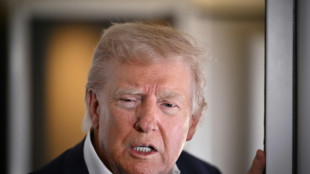
-
 Dick Barnett, two-time NBA champ with Knicks, dies at 88
Dick Barnett, two-time NBA champ with Knicks, dies at 88
-
PSG hope to have Dembele firing for Arsenal Champions League showdown

-
 Arteta faces Champions League showdown with mentor Luis Enrique
Arteta faces Champions League showdown with mentor Luis Enrique
-
Niemann wins LIV Mexico City to secure US Open berth

-
 Slot plots more Liverpool glory after Premier League triumph
Slot plots more Liverpool glory after Premier League triumph
-
Novak and Griffin win PGA pairs event for first tour titles

-
 Inter Miami unbeaten MLS run ends after Dallas comeback
Inter Miami unbeaten MLS run ends after Dallas comeback
-
T'Wolves rally late to beat Lakers, Knicks edge Pistons amid controversy

-
 Japan's Saigo wins playoff for LPGA Chevron title and first major win
Japan's Saigo wins playoff for LPGA Chevron title and first major win
-
Trump tells Putin to 'stop shooting' and make a deal
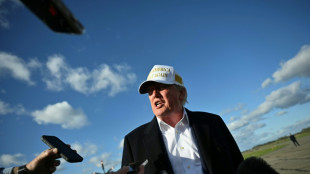
-
 US says it struck 800 targets in Yemen, killed 100s of Huthis since March 15
US says it struck 800 targets in Yemen, killed 100s of Huthis since March 15
-
Conflicts spur 'unprecedented' rise in military spending

-
 Gouiri hat-trick guides Marseille back to second in Ligue 1
Gouiri hat-trick guides Marseille back to second in Ligue 1
-
Racing 92 thump Stade Francais to push rivals closer to relegation

-
 Inter downed by Roma, McTominay fires Napoli to top of Serie A
Inter downed by Roma, McTominay fires Napoli to top of Serie A
-
Usyk's unification bout against Dubois confirmed for July 19

-
 Knicks edge Pistons for 3-1 NBA playoff series lead
Knicks edge Pistons for 3-1 NBA playoff series lead
-
Slot praises Klopp after Liverpool seal Premier League title

-
 FA Cup glory won't salvage Man City's troubled season: Guardiola
FA Cup glory won't salvage Man City's troubled season: Guardiola
-
Bumrah, Krunal Pandya star as Mumbai and Bengaluru win in IPL
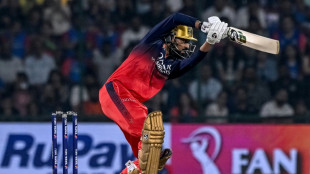
-
 Amorim says 'everything can change' as Liverpool equal Man Utd title record
Amorim says 'everything can change' as Liverpool equal Man Utd title record
-
Iran's Khamenei orders probe into port blast that killed 40
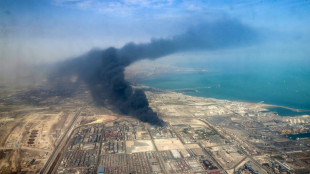
-
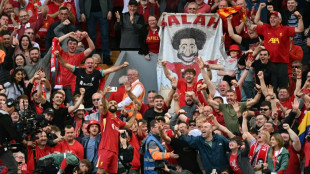 Salah revels in Liverpool's 'way better' title party
Salah revels in Liverpool's 'way better' title party
-
Arsenal stun Lyon to reach Women's Champions League final

-
 Slot 'incredibly proud' as Liverpool celebrate record-equalling title
Slot 'incredibly proud' as Liverpool celebrate record-equalling title
-
Israel strikes south Beirut, prompting Lebanese appeal to ceasefire guarantors

-
 Smart Slot reaps rewards of quiet revolution at Liverpool
Smart Slot reaps rewards of quiet revolution at Liverpool
-
Krunal Pandya leads Bengaluru to top of IPL table
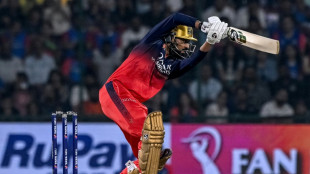
-
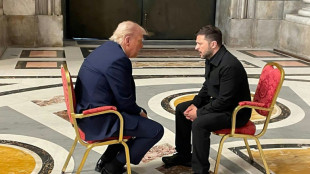 Can Trump-Zelensky Vatican talks bring Ukraine peace?
Can Trump-Zelensky Vatican talks bring Ukraine peace?
-
Van Dijk hails Liverpool's 'special' title triumph

-
 Five games that won Liverpool the Premier League
Five games that won Liverpool the Premier League
-
'Sinners' tops N.America box office for second week

-
 Imperious Liverpool smash Tottenham to win Premier League title
Imperious Liverpool smash Tottenham to win Premier League title
-
Man City sink Forest to reach third successive FA Cup final

-
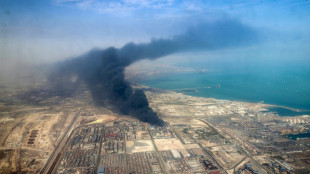 Toll from Iran port blast hits 40 as fire blazes
Toll from Iran port blast hits 40 as fire blazes
-
Canada car attack suspect had mental health issues, 11 dead

-
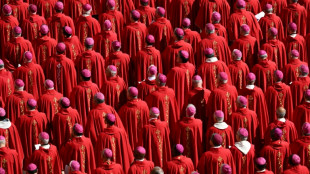 Crowds flock to tomb of Pope Francis, as eyes turn to conclave
Crowds flock to tomb of Pope Francis, as eyes turn to conclave
-
Inter downed by Roma, AC Milan bounce back with victory in Venice

-
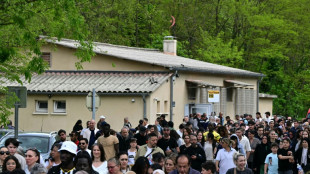 Religious hate has no place in France, says Macron after Muslim killed in mosque
Religious hate has no place in France, says Macron after Muslim killed in mosque
-
Last day of Canada election campaign jolted by Vancouver attack
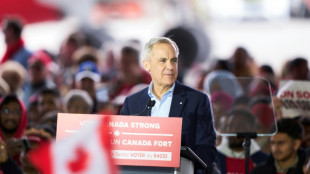
-
 Barcelona crush Chelsea to reach women's Champions League final
Barcelona crush Chelsea to reach women's Champions League final
-
Nine killed as driver plows into Filipino festival in Canada

-
 Germany marks liberation of Bergen-Belsen Nazi camp
Germany marks liberation of Bergen-Belsen Nazi camp
-
Hojlund strikes at the death to rescue Man Utd in Bournemouth draw

-
 Zelensky says Ukraine not kicked out of Russia's Kursk
Zelensky says Ukraine not kicked out of Russia's Kursk
-
Zverev, Sabalenka battle through in Madrid Open, Rublev defence over
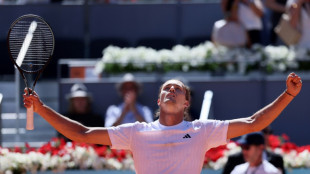
-
 Ruthless Pogacar wins Liege-Bastogne-Liege for third time
Ruthless Pogacar wins Liege-Bastogne-Liege for third time
-
Bumrah claims 4-22 as Mumbai register five straight IPL wins

The Roman Empire and its downfall?
The fall of the Roman Empire has fascinated historians, political analysts, and history enthusiasts for centuries. Once an unparalleled power that stretched across much of Europe, North Africa, and the Middle East, Rome eventually succumbed to a complicated web of internal weaknesses and external pressures. But what factors most decisively contributed to its downfall?
Overextension and Resource Strain
One prominent reason for the Empire’s decline lies in its vast territorial expanse. As the Empire expanded, maintaining military and administrative control over far-flung provinces became an immense challenge. Garrisoning remote frontiers and sustaining essential infrastructure, such as roads and aqueducts, placed enormous financial and logistical burdens on the imperial administration. Over time, these obligations led to heightened taxation and social unrest, eroding the Empire’s stability from within.
Political Instability and Weak Leadership
Another fundamental weakness was Rome’s inability to establish a consistent and resilient political structure. Frequent coups, civil wars, and assassinations destabilised the imperial government. Short-lived emperors were often more focused on consolidating power and eliminating rivals than enacting long-term reforms. This lack of continuity in governance engendered bureaucratic inefficiency and thwarted coherent policymaking, leaving Rome ill-prepared to address growing internal and external threats.
Economic Decline and Hyperinflation
Economic disruptions also played a pivotal role. As wars grew costlier, silver coinage was devalued repeatedly, leading to rampant inflation. Confidence in the currency eroded, triggering a cycle of price increases and diminishing trade. Many farmers abandoned their land, amplifying rural depopulation and further undermining agricultural productivity. Trade routes, once the arteries of Roman commerce, became perilous, stifling economic growth and rendering the state increasingly vulnerable.
The Rise of External Threats
Simultaneously, external forces took advantage of Rome’s weakening grip. Germanic tribes and other barbarian groups pressed against the Empire’s borders, sensing the growing fragility of Roman power. Although Rome had once managed to integrate or repel these incursions, mounting economic strain and military overextension hindered an effective response. Over time, repeated invasions culminated in the sacking of Rome by the Visigoths in 410 CE and the eventual deposition of the last Western Roman Emperor in 476 CE.
Social and Cultural Transformation
Lastly, shifting social and cultural dynamics played a role. Traditional Roman values of civic duty and loyalty to the state gradually gave way to localised loyalties and a reliance on mercenary forces. The rise of Christianity, while not the sole cause of the Empire’s decline, reoriented cultural and political power away from older Roman institutions and towards the Church, reducing the emperors’ influence and the old civic order’s authority.
Conclusion No single event or factor can wholly explain the collapse of the Roman Empire. Rather, it was the convergence of overextension, economic instability, political turmoil, and shifting social foundations that led to Rome’s ultimate disintegration. While debates on the precise causes continue, most historians agree that the empire’s downfall underscores the fragile balance between power, governance, and societal cohesion—an enduring lesson for any ambitious political system.

Electric car crisis: Future of a Audi plant?

Vladimir Putin, War criminal and Dictator of Russia

EU vs. Hungary: Lawsuit over ‘national sovereignty’ law

Ukraine: Zelenskyy appeals for international aid

Lebanon: Is a new wave of refugees coming to the EU?

Terrorist state Iran attacks Israel with missiles

Belarus: ICC investigates dictator Lukashenko

NATO: Ukraine ‘at the top of the list!’

NATO is training to fight cyber attacks

Digital Ocean Twin: Protecting the Oceans

What is the outlook for France’s economy?



